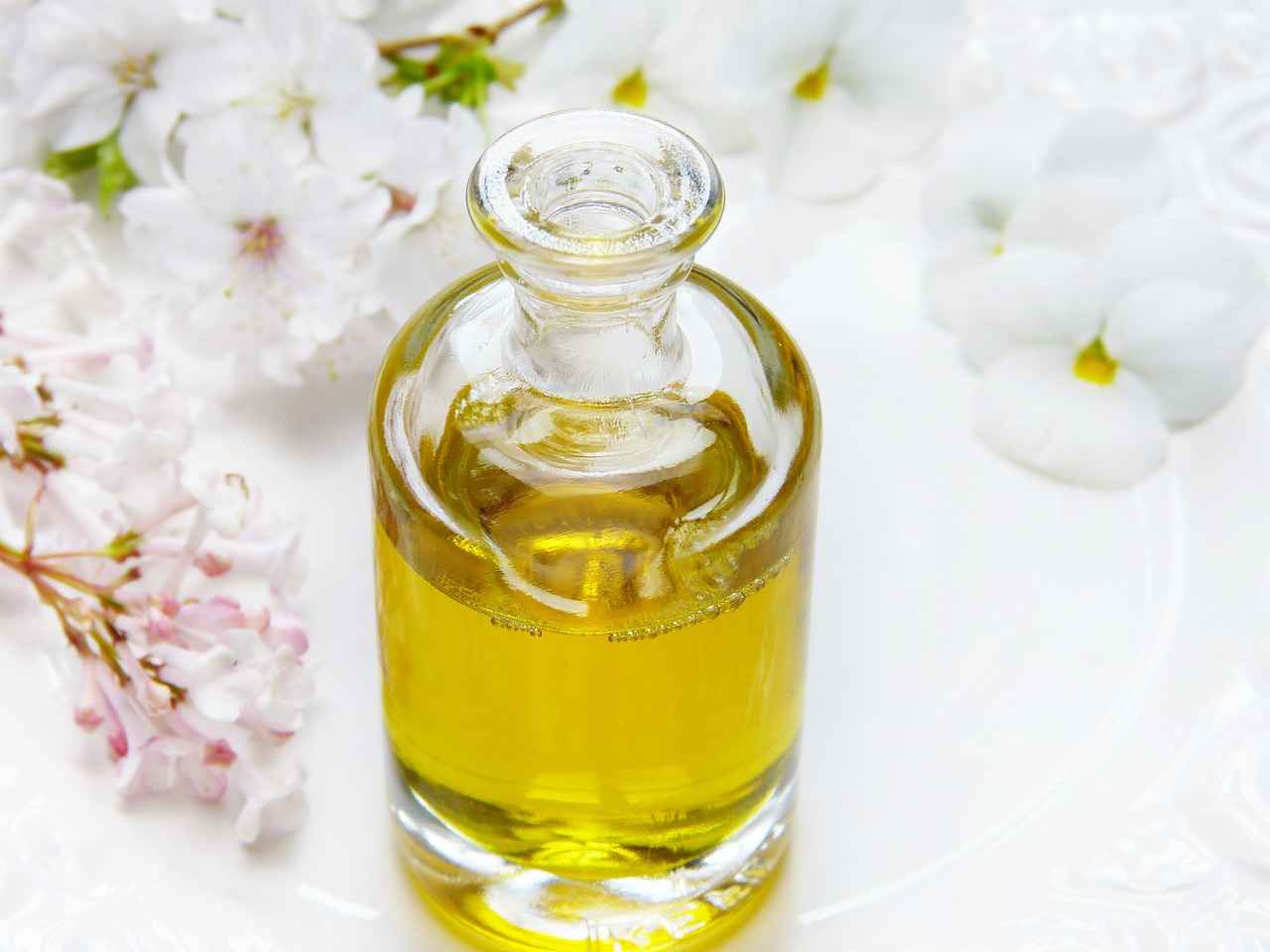This article delves into the numerous skin-calming benefits of evening primrose oil, highlighting its unique properties, various uses, and how it can significantly enhance overall skin health.
What is Evening Primrose Oil?
Evening primrose oil is extracted from the seeds of the evening primrose plant, scientifically known as Oenothera biennis. This oil is particularly rich in gamma-linolenic acid (GLA), an essential fatty acid that plays a crucial role in maintaining healthy skin.
How Does Evening Primrose Oil Work on the Skin?
The high GLA content in evening primrose oil is known for its ability to reduce inflammation and improve skin barrier function, making it an effective solution for various skin conditions.
- Benefits for Eczema and Psoriasis: Evening primrose oil has been clinically shown to alleviate symptoms associated with eczema and psoriasis, providing relief from itching, redness, and dryness.
- Reducing Inflammation: The anti-inflammatory properties help calm irritated skin and minimize flare-ups, particularly in conditions like eczema.
- Moisture Retention: By enhancing the skin’s barrier function, evening primrose oil aids in moisture retention, which is essential for managing dry skin conditions.
Anti-Aging Properties
The oil is also rich in antioxidants, which help combat oxidative stress that can lead to premature aging, making it a valuable addition to any anti-aging skincare routine.
How to Use Evening Primrose Oil
Evening primrose oil can be utilized both topically and as an oral supplement. Understanding the best methods for application can maximize its benefits.
- Topical Application Tips: For optimal results, evening primrose oil can be mixed with creams or applied directly to the skin to target specific areas of concern.
- Oral Supplementation: Taking evening primrose oil in capsule form may provide systemic benefits for skin health, supporting overall wellness.
Potential Side Effects and Precautions
While evening primrose oil is generally safe, some individuals may experience mild side effects. It is essential to be aware of potential interactions and consult a healthcare provider if necessary.
- Allergic Reactions: Some users may experience allergic reactions, so it’s crucial to perform a patch test before widespread application.
- Drug Interactions: Evening primrose oil may interact with certain medications, particularly blood thinners. Always consult a healthcare professional before starting supplementation.
Conclusion: Embracing Evening Primrose Oil for Skin Health
Incorporating evening primrose oil into your skincare routine can provide significant benefits, particularly for those with sensitive or problematic skin. Its calming properties make it a worthwhile addition to any regimen aimed at improving skin health.

What is Evening Primrose Oil?
Evening primrose oil is extracted from the seeds of the evening primrose plant, scientifically known as Oenothera biennis. This oil has gained popularity in the skincare world due to its rich composition, particularly its high levels of gamma-linolenic acid (GLA). GLA is a type of omega-6 fatty acid that plays a crucial role in maintaining skin health and overall well-being.
One of the most notable benefits of evening primrose oil is its ability to support skin hydration. The oil helps to strengthen the skin’s barrier function, which is essential for preventing moisture loss. This is particularly beneficial for individuals suffering from dry or sensitive skin conditions.
In addition to hydration, evening primrose oil possesses anti-inflammatory properties. This means it can be particularly effective in soothing conditions such as eczema and psoriasis. By reducing inflammation, it helps alleviate symptoms like redness, itching, and irritation, allowing for a more comfortable skin experience.
Moreover, evening primrose oil is rich in antioxidants, which can help combat the effects of oxidative stress on the skin. This is important for maintaining youthful skin and preventing premature aging. Incorporating evening primrose oil into your skincare routine can thus help promote a more vibrant and healthier complexion.
To use evening primrose oil effectively, it can be applied directly to the skin or mixed with other skincare products. For those who prefer a supplement, evening primrose oil capsules are also available, providing systemic benefits for skin health.
In conclusion, evening primrose oil is a versatile and beneficial addition to any skincare regimen. Its ability to hydrate, soothe inflammation, and provide antioxidant protection makes it a valuable ally for anyone looking to enhance their skin health.

How Does Evening Primrose Oil Work on the Skin?
Evening primrose oil is renowned for its remarkable ability to enhance skin health, primarily due to its high concentration of gamma-linolenic acid (GLA). This essential fatty acid plays a pivotal role in maintaining the skin’s integrity and function. By incorporating evening primrose oil into your skincare routine, you can experience a multitude of benefits that address various skin concerns.
The oil’s anti-inflammatory properties are one of its standout features. GLA helps to mitigate inflammation, which is crucial for those suffering from skin conditions such as eczema and psoriasis. Regular application can lead to a noticeable reduction in redness, itching, and irritation, providing a soothing effect that many seek in their skincare products.
Moreover, evening primrose oil significantly enhances the skin barrier function. A healthy skin barrier is essential for retaining moisture and protecting against environmental stressors. By improving this barrier, evening primrose oil aids in moisture retention, making it an excellent choice for individuals with dry or sensitive skin. This hydration not only alleviates dryness but also promotes a smoother, more radiant complexion.
Additionally, the oil’s antioxidant properties combat oxidative stress, which can accelerate the aging process. By neutralizing free radicals, evening primrose oil helps to maintain skin elasticity and firmness, making it a valuable ally in anti-aging skincare routines.
In summary, the high GLA content in evening primrose oil is instrumental in reducing inflammation and bolstering skin barrier function. Its multifaceted benefits make it an effective treatment for various skin conditions, while also contributing to overall skin health and vitality.
Benefits for Eczema and Psoriasis
Evening primrose oil has gained recognition for its remarkable ability to support skin health, particularly in individuals suffering from chronic skin conditions such as eczema and psoriasis. These conditions are characterized by symptoms like intense itching, redness, and dryness, which can significantly impact the quality of life. This article delves into how evening primrose oil can provide relief and improve skin conditions.
Research indicates that evening primrose oil is effective in alleviating the discomfort associated with eczema and psoriasis. The oil is rich in gamma-linolenic acid (GLA), an essential fatty acid that plays a crucial role in maintaining skin integrity and function.
- Alleviating Itching: Evening primrose oil helps to soothe the skin, reducing the urge to scratch, which can worsen these conditions.
- Reducing Redness: The anti-inflammatory properties of the oil work to calm irritated skin, leading to a noticeable decrease in redness and swelling.
- Combating Dryness: By enhancing the skin’s barrier function, evening primrose oil helps retain moisture, providing hydration that is vital for managing dry skin.
In addition to these benefits, evening primrose oil can also support overall skin health by promoting a balanced inflammatory response. This can lead to fewer flare-ups and a more stable skin condition over time.
For those looking to utilize evening primrose oil for eczema and psoriasis, there are several practical methods:
- Topical Application: Apply the oil directly to affected areas or mix it with a moisturizer for enhanced hydration.
- Oral Supplements: Taking evening primrose oil capsules can provide systemic benefits, supporting skin health from the inside out.
In conclusion, evening primrose oil presents a natural and effective solution for managing the symptoms of eczema and psoriasis. Its ability to soothe, hydrate, and reduce inflammation makes it a valuable addition to any skincare regimen, particularly for those with sensitive or problematic skin.
Reducing Inflammation
is a critical aspect of maintaining healthy skin, especially for individuals suffering from various skin conditions. One of the most effective natural remedies for combating inflammation is evening primrose oil. This oil, extracted from the seeds of the evening primrose plant, is renowned for its high concentration of gamma-linolenic acid (GLA), an essential fatty acid that plays a significant role in skin health.
When applied to the skin, evening primrose oil works by soothing irritated areas and providing relief from discomfort associated with conditions like eczema and psoriasis. The anti-inflammatory properties of this oil help to calm redness, reduce itching, and promote healing. This makes it an invaluable tool for those seeking to manage flare-ups effectively.
In addition to its calming effects, evening primrose oil also enhances the skin’s barrier function. By doing so, it aids in retaining moisture, which is crucial for preventing dryness that can exacerbate inflammation. The oil’s ability to improve hydration levels further supports its role in reducing skin irritation.
Moreover, the antioxidant properties of evening primrose oil help combat oxidative stress, which can worsen inflammatory conditions. By incorporating this oil into your skincare routine, you not only address existing inflammation but also help protect your skin from future flare-ups.
In summary, evening primrose oil is a powerful ally in the fight against skin inflammation. Its unique combination of anti-inflammatory and moisturizing properties makes it particularly effective for those with sensitive or problematic skin. For anyone looking to enhance their skincare regimen, evening primrose oil is a worthwhile consideration.
Moisture Retention
Maintaining proper moisture levels in the skin is essential for overall skin health, particularly for individuals suffering from dry skin conditions. Evening primrose oil is renowned for its ability to enhance moisture retention, making it a vital ingredient in many skincare products.
The oil is rich in gamma-linolenic acid (GLA), a fatty acid that plays a crucial role in strengthening the skin’s natural barrier. This barrier is responsible for preventing moisture loss and protecting the skin from environmental stressors. By improving skin barrier function, evening primrose oil not only aids in moisture retention but also contributes to a more resilient and supple skin texture.
When applied topically, evening primrose oil penetrates deeply into the skin, delivering essential nutrients that help to lock in moisture. This is particularly beneficial for those with conditions such as eczema and psoriasis, where the skin’s ability to retain moisture is compromised. Users often report a noticeable reduction in dryness and irritation after incorporating evening primrose oil into their skincare routine.
Moreover, the oil’s anti-inflammatory properties further enhance its moisture-retaining capabilities. By calming irritated skin, evening primrose oil allows for better absorption of moisture, leading to improved hydration levels. This dual action of reducing inflammation while boosting moisture retention makes it an excellent choice for anyone looking to manage dry skin effectively.
In conclusion, evening primrose oil serves as a powerful ally in the quest for hydrated skin. Its ability to improve skin barrier function and retain moisture is crucial for those struggling with dryness and related skin conditions. Incorporating this oil into your daily skincare regimen can lead to significant improvements in skin health and overall appearance.
Anti-Aging Properties
As we age, our skin undergoes various changes, making it more susceptible to damage and signs of aging. One of the most effective natural remedies for combating these effects is evening primrose oil. This oil is not only known for its soothing properties but also for its remarkable anti-aging benefits.
The primary reason evening primrose oil is effective in anti-aging skincare lies in its rich content of antioxidants. These antioxidants play a crucial role in combating oxidative stress, a process that occurs when free radicals damage skin cells. This damage can lead to premature aging, characterized by wrinkles, fine lines, and loss of elasticity.
By incorporating evening primrose oil into your skincare routine, you can help protect your skin from the damaging effects of environmental stressors such as UV rays and pollution. The oil’s antioxidants work diligently to neutralize free radicals, thereby reducing the visible signs of aging. Furthermore, evening primrose oil is rich in gamma-linolenic acid (GLA), which helps to maintain skin moisture and improve overall texture.
Regular use of evening primrose oil can also enhance your skin’s natural barrier function, promoting better hydration and resilience. This is particularly beneficial for those with dry or sensitive skin, as it aids in retaining moisture and preventing the development of fine lines.
In summary, evening primrose oil is a valuable addition to any anti-aging skincare routine. Its potent antioxidants and skin-nourishing properties make it an effective solution for combating premature aging, helping to keep your skin looking youthful and radiant.

How to Use Evening Primrose Oil
Evening primrose oil is a versatile natural remedy known for its numerous benefits, particularly for skin health. Understanding the best ways to utilize this oil can significantly enhance its effectiveness, whether applied topically or taken as a supplement.
Applying evening primrose oil directly to the skin allows for targeted treatment of specific areas. Here are some effective methods:
- Direct Application: Use a few drops of evening primrose oil on clean skin, massaging it gently to promote absorption.
- Mix with Moisturizers: Combine evening primrose oil with your favorite moisturizer or cream to boost hydration and enhance skin barrier function.
- Use in DIY Masks: Incorporate the oil into homemade face masks for added nourishment and soothing properties.
Taking evening primrose oil as a supplement can provide systemic benefits, supporting overall skin health. Consider the following:
- Capsule Form: Evening primrose oil is available in capsule form, making it easy to incorporate into your daily routine. Follow the recommended dosage on the label.
- Consult a Healthcare Professional: Before starting any supplement, particularly if you have existing health conditions or are taking medications, it’s crucial to consult with a healthcare provider.
To truly harness the benefits of evening primrose oil, consistency is key. Incorporating it into your daily skincare routine, whether through topical application or supplementation, can lead to improved skin health over time. Additionally, always conduct a patch test before widespread use to avoid any potential allergic reactions.
In summary, evening primrose oil is a powerful ally in skincare. By understanding the best methods for use—both topical and oral—you can maximize its benefits and achieve healthier, more radiant skin.
Topical Application Tips
When it comes to harnessing the benefits of evening primrose oil for your skin, the method of application can significantly influence the results. Here are some effective tips for using evening primrose oil topically:
- Direct Application: For targeted treatment, you can apply evening primrose oil directly to areas of concern. This method allows the oil to penetrate deeply into the skin, providing localized relief and nourishment.
- Mixing with Creams: To enhance the moisturizing properties of your favorite creams, consider mixing a few drops of evening primrose oil into them. This combination can boost hydration and improve the overall texture of your skin.
- Patch Test: Before applying evening primrose oil extensively, conduct a patch test on a small area of skin. This step is crucial to ensure that you do not have any allergic reactions.
- Use at Night: For optimal absorption, apply evening primrose oil in the evening as part of your nighttime skincare routine. This allows the oil to work while your skin is in repair mode during sleep.
- Combine with Other Oils: Evening primrose oil can be blended with other carrier oils, such as jojoba or almond oil, to enhance its benefits. This mixture can provide additional nourishment and improve skin elasticity.
Incorporating these tips into your skincare regimen can help you maximize the soothing and restorative effects of evening primrose oil. Whether you are targeting dryness, inflammation, or other skin concerns, this versatile oil can be a valuable addition to your routine.
Oral Supplementation
of evening primrose oil is a convenient and effective way to harness its numerous health benefits, particularly for skin wellness. This method involves taking the oil in capsule form, which is a popular choice among individuals looking to improve their skin condition from the inside out.
Evening primrose oil is derived from the seeds of the evening primrose plant and is known for its high content of gamma-linolenic acid (GLA). GLA is an essential fatty acid that plays a crucial role in maintaining skin health and overall bodily functions. By taking evening primrose oil capsules, individuals can experience a range of systemic benefits that contribute to improved skin appearance and texture.
- Supports Skin Hydration: Oral supplementation helps to enhance the skin’s moisture retention capabilities, making it an excellent option for those suffering from dry skin conditions.
- Reduces Inflammation: The anti-inflammatory properties of GLA can help in reducing skin inflammation, which is beneficial for conditions like eczema and acne.
- Promotes Skin Elasticity: Regular intake may improve skin elasticity and firmness, contributing to a more youthful appearance.
- Helps with Hormonal Balance: Evening primrose oil is often used to alleviate symptoms associated with hormonal fluctuations, which can indirectly benefit skin health.
When considering oral supplementation, it is essential to choose high-quality evening primrose oil capsules. Look for products that are cold-pressed and free from additives to ensure maximum potency and effectiveness. Additionally, it is advisable to consult with a healthcare professional before starting any new supplement regimen, especially for individuals with existing health conditions or those taking other medications.
In conclusion, taking evening primrose oil in capsule form not only supports skin health but also promotes overall wellness. By incorporating this supplement into your daily routine, you can enjoy a multitude of benefits that enhance both your skin’s appearance and your general health.

Potential Side Effects and Precautions
Evening primrose oil is widely recognized for its skin-calming benefits, but it is important to note that, while generally safe for most individuals, there are potential side effects and interactions that should be considered. Understanding these aspects can help users make informed decisions about incorporating this oil into their skincare routine.
Common Side Effects
- Mild Gastrointestinal Issues: Some users may experience mild digestive discomfort, such as nausea or upset stomach, particularly when taking the oil in supplement form.
- Headaches: A few individuals have reported experiencing headaches after using evening primrose oil, although this is relatively uncommon.
- Skin Reactions: While rare, some may develop skin irritation or allergic reactions, especially if they have sensitivities to similar oils.
Drug Interactions
Evening primrose oil may interact with certain medications, which can lead to complications. It’s particularly important to be cautious if you are taking:
- Blood Thinners: The oil may enhance the effects of anticoagulants, increasing the risk of bleeding.
- Antidepressants: Some studies suggest that evening primrose oil could affect the efficacy of certain antidepressant medications.
Consultation with Healthcare Providers
Before starting any new supplement, including evening primrose oil, it is essential to consult a healthcare provider, especially for individuals with pre-existing health conditions or those who are pregnant or nursing. This precaution ensures that any potential interactions are addressed.
Conclusion
In summary, while evening primrose oil offers numerous skin benefits, being aware of potential side effects and drug interactions is crucial. By consulting with a healthcare professional, users can safely enjoy the oil’s calming properties while minimizing risks.
Allergic Reactions
can be a concern for some users when using evening primrose oil. While this natural oil is celebrated for its numerous skin-calming benefits, it is essential to recognize that individual skin sensitivities can vary significantly.
Before applying evening primrose oil extensively, it is crucial to perform a patch test. This simple procedure helps to assess whether your skin may react negatively to the product. To conduct a patch test:
- Select a small area of skin, such as the inner forearm.
- Apply a small amount of evening primrose oil.
- Cover the area with a bandage and leave it for 24 hours.
- After removing the bandage, check for any signs of irritation, redness, or swelling.
If any adverse reactions occur during the patch test, it is advisable to avoid using the oil on larger areas of your skin. Reactions can range from mild irritation to more severe allergic responses, and understanding your skin’s tolerance is key to safe usage.
Additionally, it is important to consider that individuals with existing allergies, especially to plants or oils, may be at a higher risk for experiencing allergic reactions. Consulting with a healthcare professional or dermatologist before starting any new skincare regimen, particularly if you have a history of allergies, can provide personalized guidance and ensure safety.
In conclusion, while evening primrose oil is generally safe and beneficial for many, taking the necessary precautions, such as performing a patch test, is essential for preventing potential allergic reactions and ensuring a positive skincare experience.
Drug Interactions
are an important aspect to consider when using any supplement, including evening primrose oil. This oil, derived from the seeds of the evening primrose plant, is known for its numerous health benefits, particularly for skin care. However, it is crucial to understand how it may affect or be affected by other medications.
Evening primrose oil is rich in gamma-linolenic acid (GLA), which can influence various bodily functions. One of the most significant interactions to be aware of is with blood thinners. These medications, such as warfarin or aspirin, are used to prevent blood clots and manage cardiovascular health. The consumption of evening primrose oil may enhance the effects of these medications, potentially increasing the risk of bleeding.
For those considering evening primrose oil supplementation, it is vital to consult with a healthcare professional before starting. This step is essential to ensure that it will not interfere with any existing medications or health conditions. Here are some key points to keep in mind:
- Consultation is Key: Always discuss with your doctor, especially if you are on blood thinners or any other medications.
- Monitor for Side Effects: Be vigilant for any unusual symptoms, such as excessive bruising or bleeding.
- Adjust Dosage if Necessary: Your healthcare provider may recommend adjusting your dosage or monitoring your condition closely.
In addition to blood thinners, evening primrose oil may interact with other medications, such as those for epilepsy or psychiatric disorders. Understanding these interactions is crucial for safe supplementation.
In conclusion, while evening primrose oil offers numerous benefits, particularly for skin health, it is essential to approach its use with caution. By consulting with a healthcare professional and being aware of potential interactions, you can safely incorporate this oil into your wellness routine.

Conclusion: Embracing Evening Primrose Oil for Skin Health
Incorporating evening primrose oil into your skincare routine can yield remarkable benefits, particularly for individuals with sensitive or problematic skin. This oil, extracted from the seeds of the evening primrose plant, is renowned for its high content of gamma-linolenic acid (GLA), an essential fatty acid that plays a vital role in maintaining skin health.
The calming properties of evening primrose oil make it a valuable addition to any skincare regimen. Its ability to reduce inflammation and improve the skin’s barrier function can significantly alleviate symptoms associated with various skin conditions, such as eczema and psoriasis. Users often report a noticeable reduction in itchiness, redness, and dryness, leading to a more comfortable skin experience.
Moreover, evening primrose oil is not only beneficial for those with existing skin issues but also serves as a preventive measure against premature aging. Its antioxidant properties combat oxidative stress, which can accelerate the aging process of the skin. By incorporating this oil into your daily routine, you can help maintain a youthful appearance while promoting overall skin vitality.
For optimal results, evening primrose oil can be used both topically and as a dietary supplement. When applied directly to the skin or mixed with your favorite moisturizer, it targets specific areas of concern effectively. Additionally, taking it in capsule form can provide systemic benefits, supporting overall wellness and skin health from within.
In summary, evening primrose oil stands out as a powerhouse for skin health. Its multifaceted benefits, from reducing inflammation to enhancing moisture retention and providing anti-aging effects, make it a worthy inclusion in your skincare arsenal. Embrace the power of evening primrose oil and experience the transformative effects it can have on your skin.







